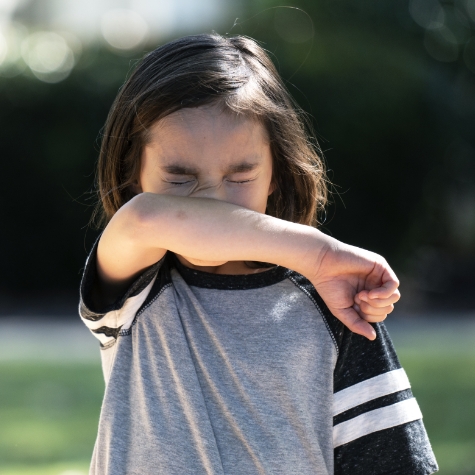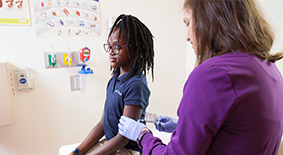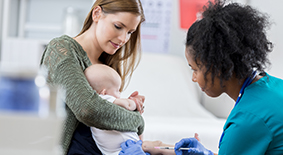Infectious diseases are disorders caused by organisms, such as bacteria, viruses, fungi or parasites. These diseases can be passed from person to person or transmitted by insects or other animals. Others may also come from consuming contaminated food or water or being exposed to organisms in the environment.
Depending on the organism causing the infection, signs and symptoms vary but often include fever and fatigue. Mild infections may be helped with rest and home remedies, but some life-threatening infections may require your child to be hospitalized. In addition, many infectious diseases, such as measles and chickenpox, can be prevented with vaccines.
Resources for Preventing Infectious Diseases
At Children’s Healthcare of Atlanta, we know that kids from birth to age 18 need to be treated by physicians who are experts in pediatric care. Our physicians are experienced in providing consultations, treatment and follow-up care to children, teens and young adults who have a variety of conditions related to infectious diseases, such as:
- COVID-19
- Flu
- Respiratory syncytial virus (RSV)
- Measles
- Multisystem Inflammatory Syndrome in Children (MIS-C)
- Infections with resistant organisms
- Antiviral and antifungal therapies
- Fevers of unknown origin
- Frequent, recurrent or unusual infections
- Diagnosis and management of AIDS and human immunodeficiency virus (HIV)
- Serious or life-threatening infections
- Infections with unusual organisms
- Medical management of bone or joint infections
- Recurrent skin and soft tissue infections
- Infections in individuals with suppressed immune systems
- Congenital infections

What parents need to know about walking pneumonia
Walking pneumonia is a respiratory illness caused by bacteria. Learn how to recognize the symptoms, how to treat it at home and when to see a doctor.
At Children’s, our research team works closely with Emory University and Georgia Tech to develop innovative treatments to allow children to live healthier lives. Our infectious diseases team is involved in a variety of clinical research projects with an emphasis in the following areas:
- Causes of diarrheal illness
- Clinical trials of vaccines and antibiotics
- COVID-19 testing and treatment
- HIV
- Immunity to infectious diseases
- Malaria
- RSV and vaccine advancements
- Tuberculosis
Children's Physician Group–Infectious Diseases
Children’s Physician Group is the largest pediatric multispecialty physician practice in Georgia with more than 500 doctors who are employed by Children's and/or serve as faculty members at Emory University School of Medicine. Children’s Physician Group–Infectious Disease providers include:
Physicians
- Omayma Amin, MD
- Frank E. Berkowitz, MD
- Andres F. Camacho-Gonzalez, MD
- Ann Chahroudi, MD, PhD
- Lisa M. Cranmer, MD
- Thomas Fox, MD
- Kathryn Goggin, MD
- Madeleine Goldstein, MD
- Cassie Grimsley Ackerley, MD
- Preeti Jaggi, MD
- Satoshi Kamidani, MD
- Matthew Linam, MD
- Latania Logan, MD
- Suong Nguyen, MD, PhD
- Pratik "Tik" Patel, MD
- Christina A. Rostad, MD
- Andi Shane, MD, MPH
Advanced practitioners
Community provider
We work closely with the following private practice physician to deliver seamless care to patients at our hospitals.
Contact Us 404-785-KIDS (5437)









